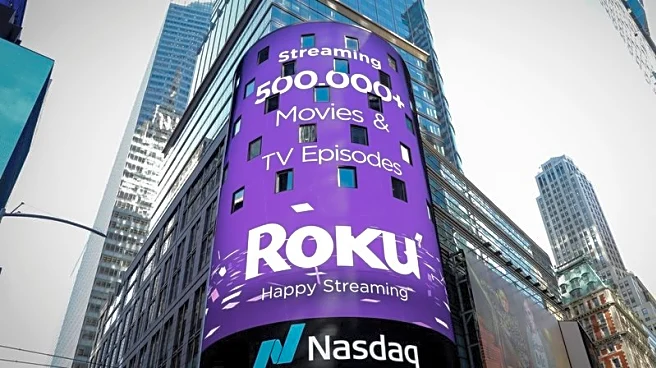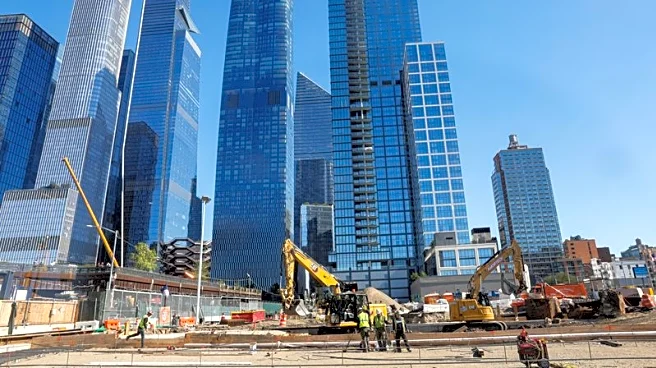What's Happening?
Venezuela has claimed the capture of a mercenary group allegedly linked to the Central Intelligence Agency (CIA), accusing them of planning a false flag attack to incite military conflict. Venezuelan Vice
President Delcy Rodriguez stated that the attack was intended to occur in waters near Trinidad and Tobago or from territories within Trinidadian or Venezuelan borders. The accusation comes as President Trump confirmed authorizing covert CIA operations in Venezuela. The U.S. has increased military presence in the Caribbean, deploying the Gerald R. Ford Carrier Strike Group and conducting joint exercises with Trinidad and Tobago. The Trump administration has also intensified operations against drug cartels linked to Venezuelan President Nicolas Maduro, including airstrikes on suspected narco-boats.
Why It's Important?
The allegations and military maneuvers highlight escalating tensions between the U.S. and Venezuela, potentially impacting regional stability and international relations. The U.S. military's increased presence in the Caribbean reflects a strategic focus on countering drug trafficking and exerting pressure on the Maduro regime. This development could affect U.S. foreign policy and military strategy in Latin America, influencing diplomatic relations and economic sanctions. The situation may also impact global oil markets, given Venezuela's significant oil reserves and ongoing economic challenges.
What's Next?
Further military actions and diplomatic responses are likely as the U.S. continues to target drug cartels and support opposition forces in Venezuela. The international community may react to these developments, potentially leading to increased sanctions or diplomatic interventions. The situation could evolve with potential negotiations or escalations in military activities, affecting regional alliances and global geopolitical dynamics.
Beyond the Headlines
The ethical implications of covert operations and false flag accusations raise questions about international law and sovereignty. The situation underscores the complexities of U.S.-Venezuela relations, including historical tensions and ideological differences. Long-term impacts may include shifts in regional power dynamics and the role of international organizations in mediating conflicts.










